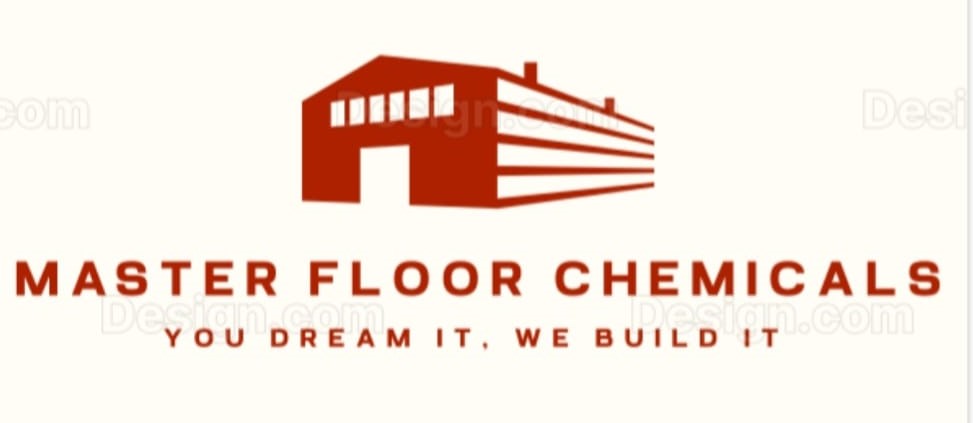In the world of industrial infrastructure, choosing the right flooring for warehouses and industrial units is more than a matter of appearance—it’s about performance, safety, and longevity. These high-traffic environments demand flooring solutions that can withstand heavy loads, resist abrasion, and require minimal maintenance. The right floor not only supports daily operations but also plays a critical role in workplace safety and long-term cost savings.
At Masterfloor Chemicals, we understand these demands. Our experience in flooring solutions has helped numerous businesses create robust, long-lasting surfaces tailored for industrial environments. In this blog, we’ll walk you through the top flooring solutions ideal for warehouses and industrial units, along with their pros, applications, and maintenance insights.
🧱 1. Non-Metallic Floor Hardeners
Best for: Heavy-duty areas with moderate to high foot and vehicle traffic.
Non-metallic floor hardeners are a popular choice in warehouses due to their excellent wear resistance and dust-proofing qualities. Applied as a dry shake on freshly poured concrete, these hardeners create a dense, durable surface that resists abrasion and impact.
Advantages:
- Increases surface strength and hardness
- Reduces dust generation
- Cost-effective and easy to apply
- Available in various colors for aesthetic value
Common Uses:
- Storage facilities
- Packaging units
- General-purpose warehouses
🧲 2. Metallic Floor Hardeners
Best for: High-load zones such as forklift lanes and assembly areas.
When warehouses are subject to extremely high mechanical stress, metallic floor hardeners provide additional durability. These hardeners contain metallic aggregates that reinforce the concrete surface, making it even more impact-resistant and long-lasting.
Advantages:
- Superior wear resistance
- Ideal for areas with steel wheels or heavy machinery
- Longer life under heavy loads
Common Uses:
- Industrial plants
- Loading docks
- Machine-heavy environments
⚠️ Note: Metallic hardeners may be more prone to rust in moist environments, so proper sealing and moisture control are essential.
🌈 3. Color Floor Hardeners
Best for: Warehouses needing aesthetic appeal with durability.
Color floor hardeners combine performance with design. These are perfect for areas that require visual zoning (e.g., safety walkways, storage zones) or need a more professional look without compromising durability.
Advantages:
- Visually enhances workspaces
- Allows for safety color-coding
- Provides same durability as standard hardeners
Common Uses:
- Showroom warehouses
- Retail storage areas
- Cleanroom-adjacent facilities
🧪 4. Epoxy Flooring
Best for: Chemical-resistant and hygienic environments.
Epoxy flooring is a resin-based coating applied over concrete floors to create a smooth, highly durable surface. It’s highly resistant to chemicals, oil spills, and stains, making it ideal for industries where cleanliness is a priority.
Advantages:
- Seamless and easy to clean
- Strong resistance to chemical and oil spills
- Anti-slip finishes available
Common Uses:
- Pharmaceutical and food warehouses
- Laboratories
- Cold storage areas
🔧 5. Polished Concrete
Best for: Facilities needing minimal maintenance and modern aesthetics.
Polished concrete involves grinding concrete surfaces to a smooth, reflective finish. It is eco-friendly and cost-effective while still offering decent resistance to wear and tear.
Advantages:
- Low maintenance
- Cost-efficient over the long term
- No additional coatings required
Common Uses:
- Logistics hubs
- Retail distribution centers
- Electronics storage units
🛡️ 6. PU (Polyurethane) Flooring
Best for: Temperature-sensitive and hygienic zones.
Polyurethane flooring is known for its flexibility and resistance to thermal shock, making it ideal for environments exposed to varying temperatures. It also offers good chemical resistance and is easy to clean.
Advantages:
- Excellent thermal and chemical resistance
- Comfortable underfoot for long-standing hours
- Easy to sanitize
Common Uses:
- Cold storage
- Food processing units
- Pharmaceutical warehousing
📝 Conclusion: Choose the Right Flooring for Your Needs
When selecting a flooring solution for your warehouse or industrial unit, it’s crucial to evaluate your specific operational needs—traffic load, chemical exposure, safety regulations, and maintenance capabilities. A one-size-fits-all solution rarely works in industrial settings.
At Masterfloor Chemicals, we specialize in providing high-performance flooring solutions tailored to your facility’s requirements. Whether you’re building a new warehouse or upgrading an existing one, our range of floor hardeners and industrial coatings can help extend floor life, enhance safety, and improve operational efficiency.

